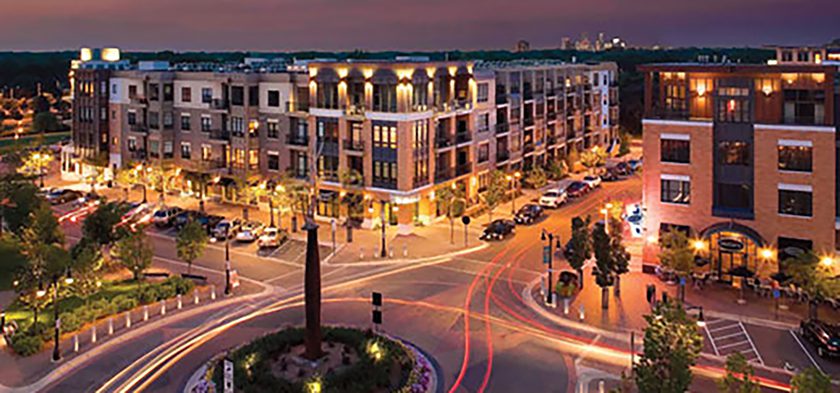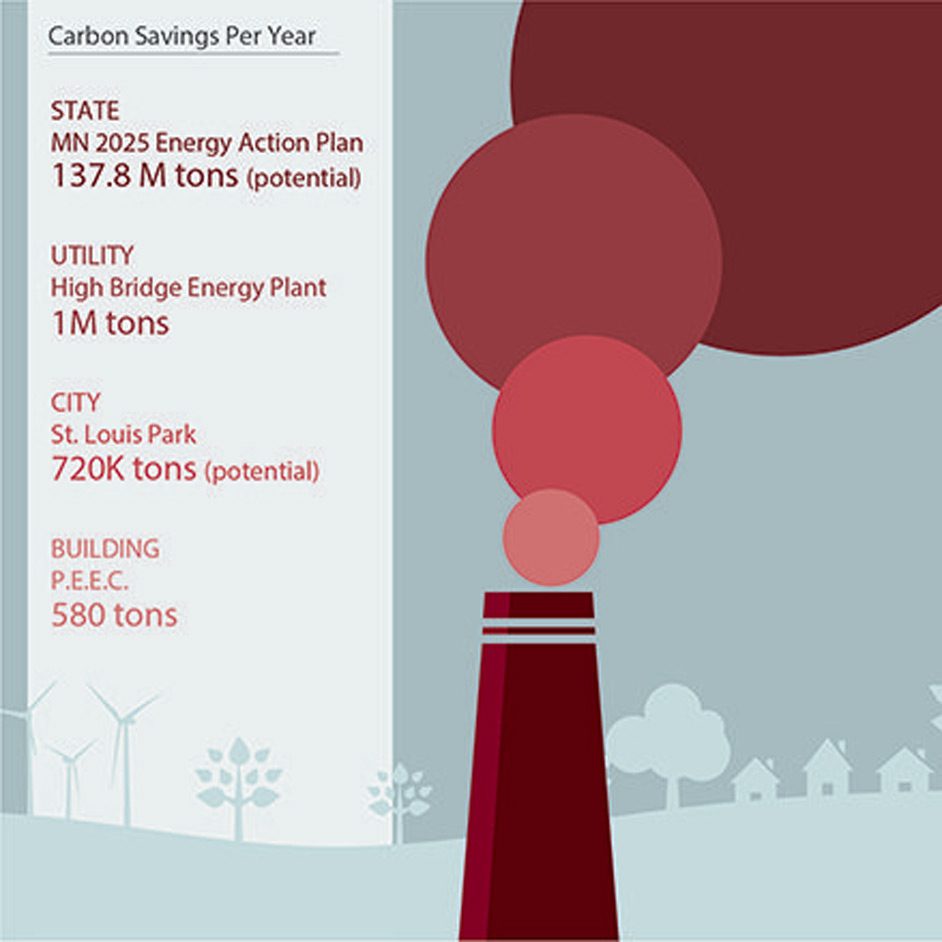
Last May, with strong advocacy from local youth, St. Louis Park passed a climate inheritance resolution that documents the city’s commitment to create a climate action plan that “significantly reduces St. Louis Park’s greenhouse gas emissions to levels that would protect our community’s children and grandchildren from the risk of climate destruction.” (Passage taken directly from the climate inheritance resolution)

“The time to act is now. We shouldn’t
have to be afraid of our future.”
–Jayne Stevenson, youth member of the Environment and Sustainability Commission
As a consultant hired to assist in developing the City’s Climate Action Plan, LHB’s Climate Solutions Studio has charted a pathway toward the city’s goal of carbon-neutrality by 2040 by estimating the impact of various efficiency and decarbonization strategies. Key strategies at the building scale – such as designing all new buildings to meet the energy standards set by Minnesota’s SB 2030 program – are joined by strategies such as green power purchase and increased adoption of electric vehicles.
The strategies outlined in the Plan are estimated to achieve a 62% reduction from the city’s business-as-usual forecast in 2040. The remaining emissions (from natural gas use in buildings and vehicle and air travel) will need to be addressed through advanced strategies and carbon offsets.

Highlights from the Climate Action Plan include:
- Promotion of net-zero energy buildings
Implementing a stretch energy code such as Minnesota’s SB 2030 would reduce total emissions from building energy use by 6% from the business-as-usual forecast. - A goal of carbon-neutral electricity by 2025
Along with exploring their on-site solar generation potential (the City can meet 10% of their anticipated electricity consumption in 2030 by using 13% of the feasible rooftop area for photovoltaic systems), this will require a partnership with electric utility Xcel Energy to encourage residents and businesses to participate in green power purchase programs such as Renewable Connect. - Identification of advanced strategies for thermal efficiency and decarbonization
Advanced strategies include fuel switching from natural gas to electricity, thermal energy grids, combined heat and power, and anaerobic digesters capturing biogas from the decomposition of organic material.
LHB’s involvement in this project grew out of our work on the Regional Indicators Initiative, which tracks community-wide performance metrics for Minnesota cities, and the Local Government Project for Energy Planning (LoGoPEP), which is developing energy planning tools for cities – including the wedge diagram tool featured here. St. Louis Park was one of the three pilot cities for the Regional Indicators Initiative back in 2010 and is currently one of five partner cities helping pilot test the energy planning tools being developed for LoGoPEP.
